Footage raises additional questions about Wagner presence in Sudan
Videos allegedly show Wagner personnel training Sudanese Army and RSF paramilitary forces.
Footage raises additional questions about Wagner presence in Sudan
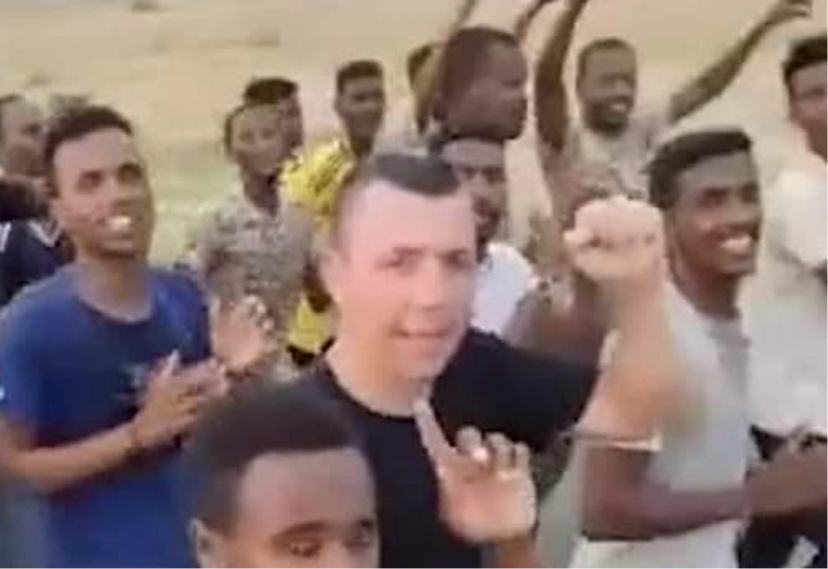
Videos allegedly show Wagner personnel training Sudanese Army and RSF paramilitary forces
In July 2022, two videos reportedly showing Wagner Group operatives training Sudanese personnel appeared respectively on a Sudanese Facebook page and a Russian Telegram channel allegedly linked to the private military company. Although the identity of the trainers could not be confirmed, evidence of the Wagner’s activity in Sudan continues to mount despite consistent denial from the Sudanese government of the Kremlin-linked group’s presence in the country. Recent investigations into Russia’s involvement in Sudan revealed a network of Russian firms linked to Wagner that are used to loot Sudanese gold and smuggle it out of the country to boost Putin’s war effort in Ukraine, all while helping the Sudanese military crush the current movement for a democratic Sudan.
Private Military Companies in Sudan
The number of mercenary and private soldiers operating on the African continent remains unknown, as the majority of private military companies (PMCs) operate in the shadows. Although transparency is not common within the world of guns-for-hire, the German security group Asgaard has been active in Sudan, as well as Chinese contractors, primarily hired to protect Chinese PMCs. In 2012 the US military company Academi LLC, formally known as Blackwater Worldwide, was fined for violating trade sanctions and trying to operate in Sudan in 2006.
While it is possible that any number of the documented PMCs operating on the continent could have started training different branches of the Sudanese military, the ever-growing evidence of the Wagner Group’s presence in the country suggests Kremlin involvement in Sudan. Credible reports of Wagner’s arrival in Sudan first emerged in 2017, after a meeting between Russian officials and then-President Omar al-Bashir culminated in a portfolio of signed agreements related to mining concessions, geological explorations, oil and gas cooperation, and a proposal to establish a Russian naval base in Port Sudan. Of particular note was an agreement between the Sudanese Ministry of Minerals and M-Invest, a company owned and operated by Yevgeny Prigozhin, who recently acknowledged his role founding Wagner Group, a link he had consistently denied previously. That agreement granted concessions to M-Invest and its subsidiaries to explore gold mining sites in Sudan — a tactic that has become a consistent contracting strategy for Wagner in other African states, and one that illustrates the exploitative nature of the firm.
In exchange for resource concessions, Wagner provided al-Bashir a portfolio of services, including information operations, military and police training, and the transport of weapons. In early 2019, the Kremlin confirmed the presence of Russian contractors in Sudan, claiming they were there to train the country’s military and law enforcement. Evidence would later implicate Prigozhin and Wagner in cultivating plans to keep al-Bashir in power, from designing disinformation campaigns to discredit anti-government protesters and taking part in the repression of large-scale demonstrations. These attempts were unsuccessful, and al-Bashir was ousted in 2019, creating uncertainty about Russia’s future involvement in Sudan along with the role of Wagner and Prigozhin’s business interests there.
During the transitional period in which military and civilian authorities shared power, both Wagner and Russia largely shunned the civilian government and focused on maintaining relations with the military in an attempt to preserve their interests. Following the October 2021 military coup in Sudan, Russia lent powerful political and military backing to Sudan’s increasingly unpopular military leadership in order to maintain access to mining resources and strengthen its position of influence.
At the heart of this quid pro quo between Moscow and Sudan’s military junta is a network of companies linked to Wagner Group and Yevgeny Prigozhin employed to extract gold from Sudan. The Kremlin continues its direct efforts to court General Mohamed Hamdan Dagalo, leader of Sudan’s Rapid Support Forces (RSF), an infamous paramilitary group. Dagalo, also known as Hemedti or Hemeti, has maintained a special relationship with Wagner and Russia since 2019; he visited Moscow when Russia invaded Ukraine on February 24, 2022.
New videos allege Wagner activities in Sudan
Although both videos were posted in July 2022, their recording dates remain unknown. The DFRLab was not able to find evidence of either video having appeared online publicly before that month. Both videos show different branches of the Sudanese military being trained by foreigners of European extraction. While it is not possible to confirm the identity of these individuals, the footage raises the spectre of ongoing Wagner involvement in Sudan, particularly since the source of one of the two videos is believed to have connections with the PMC.
On July 1, 2022, a video appeared to a Facebook page named “Mujo Press — موجو بريس” claiming to show a Wagner officer training members of the RSF. The video description, translated from Arabic, says, “The presence of Russian Wagner mercenaries in Sudan was widely denied within the coup authority. A video showing a Wagner officer taking over a training process for Janjaweed elements.”
The video depicts a group of men running and singing. The song, often sung by militia while training, is typically associated with tribes in Darfur and Kordofan, in western and southwestern Sudan. The accents and dialect of the men singing are also consistent with those areas. According to Human Rights Watch, Arabic tribal militia from Darfur and Kordofan were part of the Janjaweed, militia groups that operated alongside Sudanese government troops in the war in Darfur, which began in 2003. (Former Sudanese president Omar al-Bashir was indicted by the International Criminal Court for war crimes, crimes against humanity and genocide as a result of the conflict.) In 2013 Hemedti, a former Janjaweed commander, recruited Janjaweed members primarily from Darfur to form part of the newly-created Rapid Support Forces.
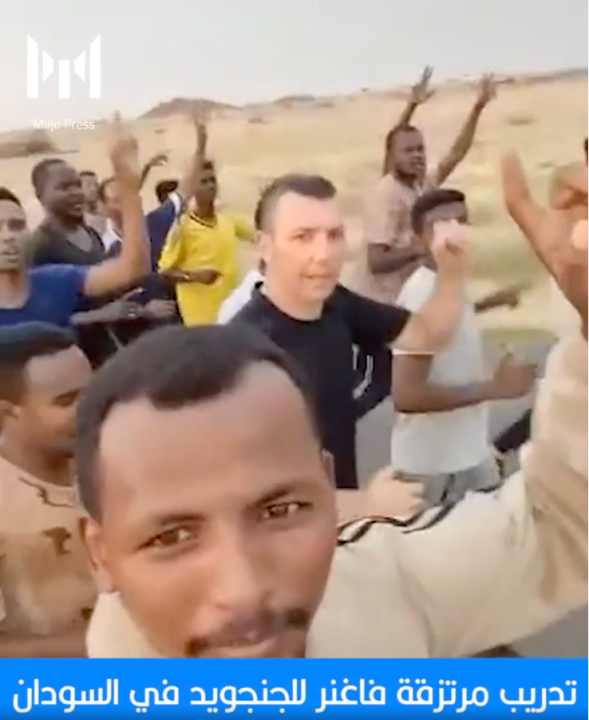
While most of the men in the video are wearing civilian clothing, a few appear to be wearing t-shirts with the tri-color desert camouflage pattern typically associated with the RSF. These t-shirts are distributed among Sudanese forces for training purposes. While the men in the video are wearing RSF training t-shirts, a Sudanese analyst who asked to remain anonymous for their safety told the DFRLab that training uniforms are often loosely shared among different forces within Sudan.
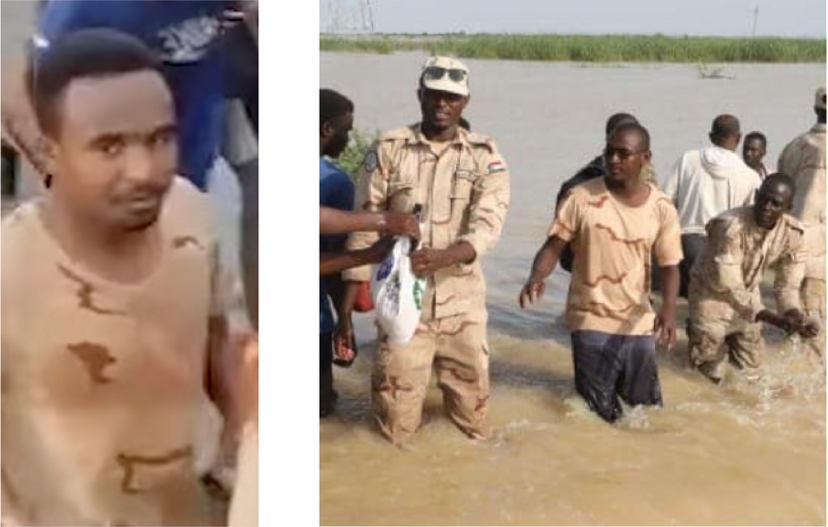
A second video, posted to the Telegram channel Grey Zone, allegedly shows a Wagner adviser training Sudanese military personnel. The text, in Russian, says, “Sudanese military personnel conduct parachute landing from a Mi-8 [combat helicopter] under the leadership of the Wagner Group fighters, who, among other tasks in the African country, also carry out general training of military personnel.” The man coordinating the jump is of European extraction, though the video conceals his identity by blurring his face. According to Flight Global data for 2022, Sudan has twenty-four active Mi-8 combat helicopters.
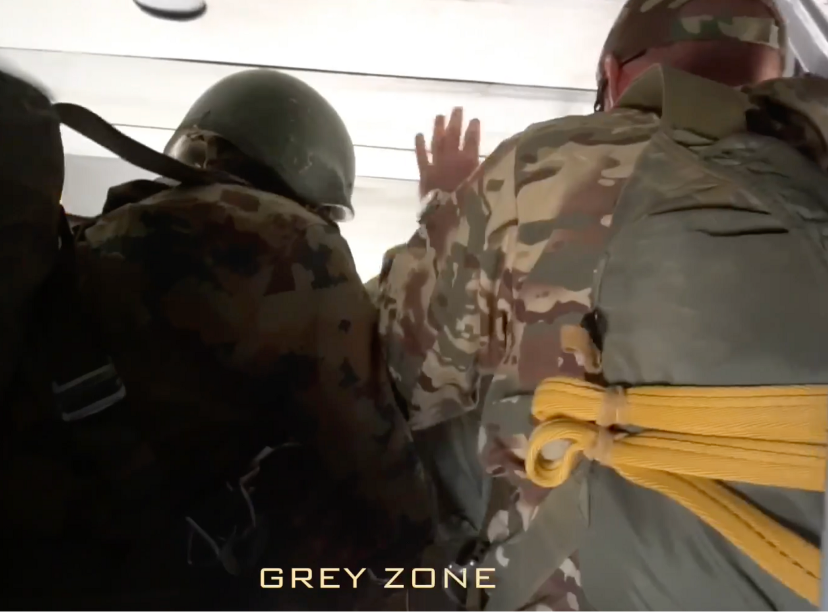
Grey Zone is one of the most famous Telegram channels with alleged Wagner connections. Both Grey Zone and Reverse Side of the Medal (RSOTM), another popular channel believed to be associated with Wagner, publish news related to Russian special forces, Kremlin foreign policy, and Wagner activities from Ukraine to Africa. One of the main focuses of Telegram channels such as Grey Zone, which is part of a wider “milblogger” network supportive of the war in Ukraine and likely linked to the Russian military, is Russia’s presence in Africa. While the channels in this pro-war network are often cited by Western journalists and researchers, little is known about their structure and who operates them. What is clear, though, is that the channels publish content related to Russian special forces operations, Wagner missions and footage from the frontlines of the Russian invasion of Ukraine.
Although Grey Zone publishes content about Wagner, the alleged Wagner operative in the video about training Sudanese military personnel is kept anonymous. Throughout most of the video, the operative’s face is kept off-camera; at one point when his face would have been in view, his features are blurred to prevent easy identification.
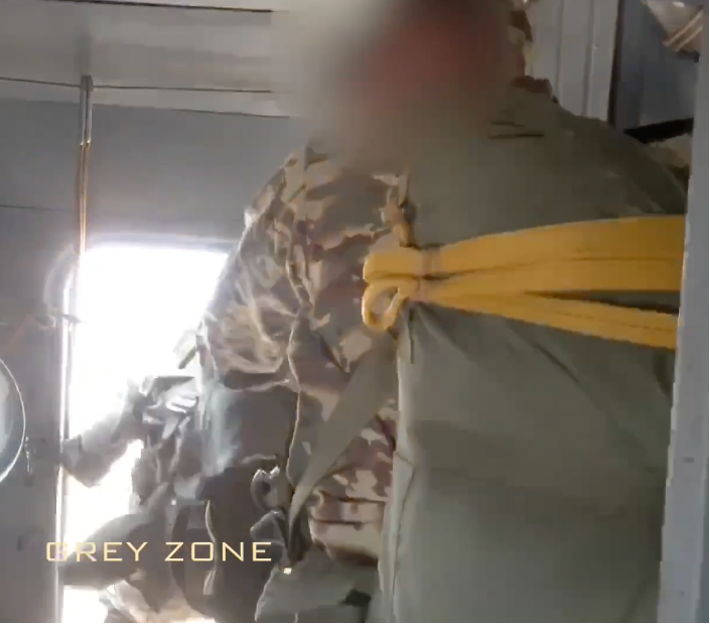
It is not uncommon for Russian units located in zones that are of interest to the Kremlin to wear local uniforms of a state army or paramilitary group that support the government with which Moscow has a contract. Such cases can be traced to Afghanistan, where Soviet forces used Afghan uniforms while preparing for its 1979 invasion. In modern times, members of Russian special forces and Wagner units have been spotted using uniforms and stripes that would be recognized by the local population. In countries where Russian units are present, such as Syria, Russia employs the concept of maskirovka (disguise) to conceal the presence of Russian units, so the Kremlin can deny their presence in areas that are politically sensitive. Wagner’s members have been spotted using Lebanese Hezbollah badges to obfuscate their participation in parts of Syria, for example.
Two different uniforms seen in the paratrooper video are consistent with those worn by the Sudanese Armed Forces (SAF). The SAF traditionally wear a version of woodland-style camouflage, which personnel in the video appear to be wearing. Another uniform seen in the video is also associated with the Sudanese military, incorporating a traditional curved sword into a tri-color desert pattern.
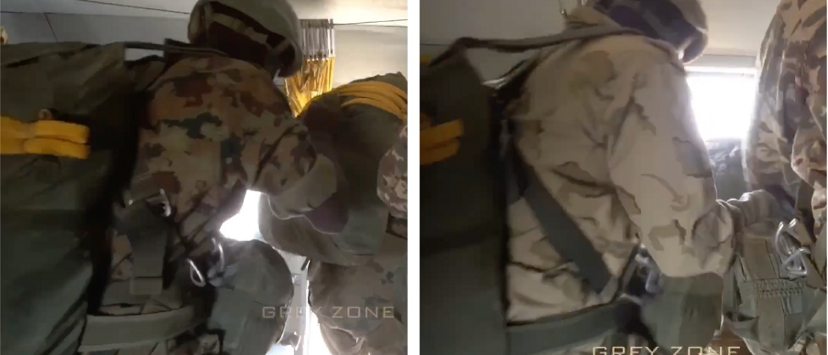
However, none of the alleged Sudanese military personnel were wearing anything to indicate they belong to the SAF — no Sudanese flag patches, which SAF usually wear on their upper arm, nor anything to designate rank or position. This may be because the recruits are trainees and are therefore wearing uniforms devoid of anything that would represent their rank, but without further evidence it is impossible to tell.
Wagner in Africa
The video footage, one of which was distributed by a Wagner-linked channel, suggests that Wagner Group is most likely still collaborating with Gen. Abdel Fattah al-Burhan’s military government, while at the same time maintaining relations with Hemedti and RSF.
Wagner’s presence in Sudan has been a useful tool for Moscow to consolidate its influence not just in the strategically located African country, but also to expand it in Libya and Central African Republic, ultimately strengthening Russian posture in Africa. Its expansion in the continent appears to be driven by its entrepreneurially exploitative ethos and Moscow’s strategic interest in security regional influence. The Kremlin continues to benefit from the gold-smuggling activities conducted by Wagner and its network of companies, which provide a buffer for the recent sanctions imposed on the country.
Wagner’s persistence in Sudan, facilitated and encouraged by the Kremlin, is the latest demonstration that the group is not just a mercenary group. Rather, the Wagner Group is a hybrid tool of the Kremlin, able to travel the spectrum between private entrepreneurism to state proxy, that Moscow can deploy to act as a state force multiplier while simultaneously denying Russian’s presence in the country. In the African context, Russia has deployed Wagner multiple times as part of a strategy to help authoritarian leaders stay in power while gaining a pro-Russian military presence on the ground. The positive outcomes of this strategy far exceed the costs for the Kremlin, at least on the short term, as Russia has built a strong network of African influence with relatively little effort, secure concessions in strategic extractive industries, and expand military-to-military relations on the continent.
Cite this case study:
Tessa Knight, Mattia Caniglia, and Ruslan Trad, “Footage raises additional questions about Wagner presence in Sudan,” Digital Forensic Research Lab (DFRLab), October 19, 2022, https://medium.com/@DFRLab/footage-raises-additional-questions-about-wagner-presence-in-sudan-f6a30d9e85a4.

